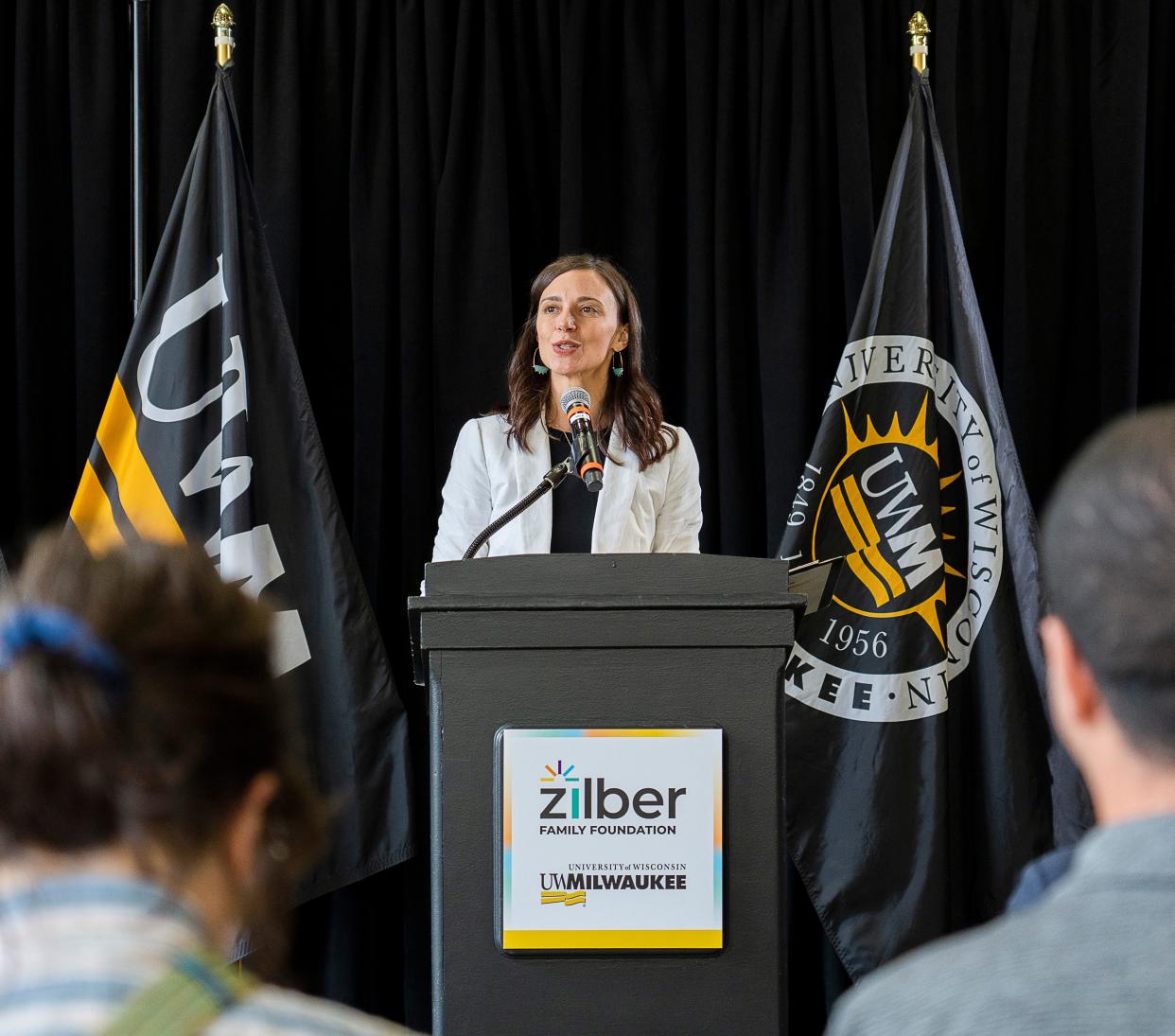Zilber Family Foundation program putting money in the mother's hands, no strings attached

One hundred expectant mothers in Milwaukee's most impoverished neighborhoods may be eligible for roughly $16,000 during the first two years of their child's life in a first-of-its-kind, unconditional cash program to address childhood poverty in Wisconsin.
Through a nearly $1.6 million donation, the Zilber Family Foundation aims to put money directly in the hands of women and mothers to purchase food or diapers, pay rent or catch up on bills. The Bridge Project program begins accepting applications Wednesday.
Applications will be reviewed on a rolling basis and eligible program participants will be selected by lottery. The application period will remain open until all 100 slots have been filled.
"The beauty of the project is we know there is not a one-size-fits all solution," Gina Stilp, the Zilber Family Foundation's executive director, told the Milwaukee Journal Sentinel. "Giving women and mothers the flexibility to spend the money where their family needs it is the biggest opportunity and difference of this program."
To be eligible, applicants must be 18 years or older, up to 23 weeks pregnant, have an annual household income of less than $39,000, and live in the 53204, 53205 or 53206 ZIP codes. Within those three zip codes, priority will be given to pregnant individuals in the Lindsay Heights, Clarke Square and Layton Boulevard West neighborhoods.
Program participants will receive a one-time, $1,125 prenatal stipend, followed by 15 monthly payments of $750 and then nine monthly payments of $375. Stilp said the foundation hopes to disburse the first stipends on June 1.
The project's premise leaps past the stereotypes of low-income women, particularly women of color, Stilp said.
"We are overcoming the assumption that they have done something wrong. Or that they are morally inferior in some way and that has resulted in their personal poverty or their generational poverty," she said. "What we believe is that there are systems at play in Milwaukee that have not only caused, but perpetuated, cycles of poverty."
In Wisconsin, roughly 1 in 7 children live in poverty, and Milwaukee has the second-highest poverty rate among the top 50 most populated cities in the country. Nearly 25% of the city and 43% of Black residents live in poverty, Stilp said. The city also has one of the worst infant mortality rates in the country, with roughly 100 children dying annually before celebrating their first birthdays. The infant mortality rate problem has been chronic.
Stilp said she and foundation members began brainstorming how to address a foundation goal of working in marginalized, underserved communities by discussing what would happen if they were able to get money directly into the hands of the people who need it most.
Then the COVID-19 pandemic happened, and the federal government passed the expanded Child Tax Credit in 2021.
"We saw the impact of that and how it reduced childhood poverty at a striking level," Stilp said. "That rekindled our interest."
A national search for a program ensued. The Zilber Family Foundation is now partnering with New York-based The Monarch Foundation, which launched The Bridge Project in New York's five boroughs in June 2021. The program has since spread to Rochester and Buffalo. Milwaukee is its fifth location and first out of New York state.
Holly Fogle, The Monarch Foundation co-founder, said the foundation will be offering support to assist with data and research. She said research from the existing projects in New York cities revealed roughly 70% of the pregnant women who were enrolling in The Bridge Project had less than $100 in savings.
"That gives you a sense of how close to the line these women are," Fogle said.
That's what led to starting the women with a $1,125 prenatal payment.
"Their piece of mind shifts drastically when they know there is a pack of diapers in the house or a place for their baby to sleep," Fogle said.
Stilp said word of mouth already has women calling the foundation's office, and she and Fogle discussed The Bridge Project on Wednesday with dozens of community partners to raise awareness and connect with applicants.
"In the same way that wealth is passed down generationally, poverty is passed down generationally," Stilp said. "We hope to demonstrate that allowing women the autonomy to choose what is best for themselves and their families is something we should value and replicate."
Jessica Van Egeren is the Milwaukee Journal Sentinel's enterprise health reporter. She can be reached at 608-320-3535 or jvanegeren@gannett.com.
This article originally appeared on Milwaukee Journal Sentinel: Zilber Family Foundation giving money to moms, no strings attached.

